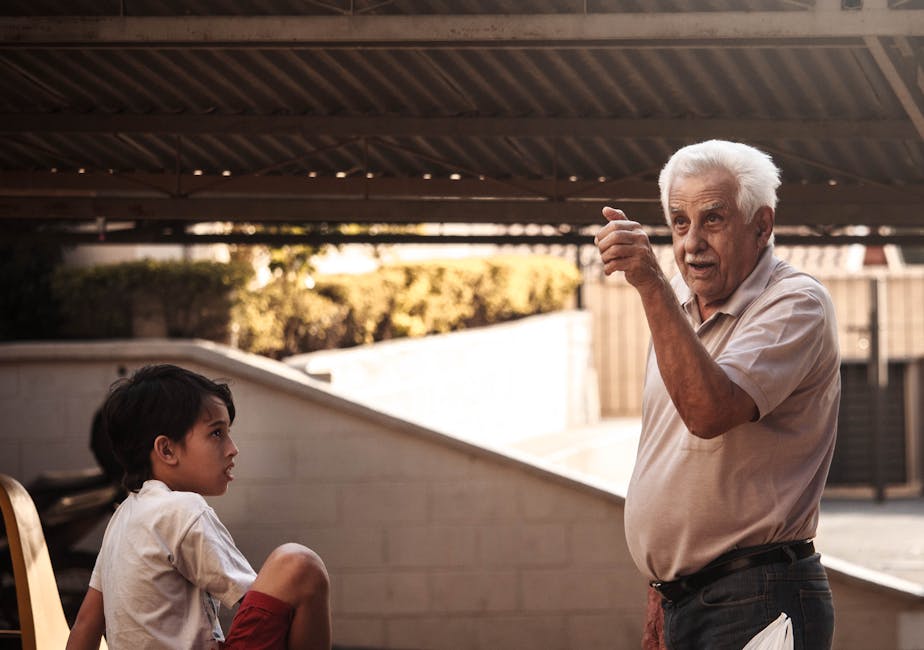Parenting is a journey filled with love, challenges, and, let’s face it, a few disagreements along the way. Managing differences in parenting styles can feel like walking a tightrope—one wrong step, and things can get shaky. But here’s the good news: with a little understanding, communication, and teamwork, you and your partner can find balance and harmony in your parenting approach.
Let’s dive into how you can navigate these differences, strengthen your relationship, and create a nurturing environment for your children.
Key Takeaways
- Parenting styles significantly impact your child’s development and family dynamics.
- Open communication and compromise are essential for managing differences.
- Focusing on shared values and the child’s well-being can help resolve conflicts.
- Professional help, like family therapy, can be a valuable resource when conflicts escalate.
Introduction to Parenting Style Differences
Definition and Importance of Parenting Styles
Parenting styles are the methods and attitudes parents use to raise their children. They shape how kids view the world, handle challenges, and interact with others.
Understanding your parenting style—and your partner’s—matters because it directly influences your child’s emotional and social development. When parents are on the same page, it creates a stable and secure environment.
Common Challenges Arising from Differing Parenting Approaches
It’s not uncommon for one parent to lean toward being stricter while the other prefers a more laid-back approach. These differences can lead to arguments, confusion for the kids, and even resentment between partners.
For example, imagine one parent enforcing a strict bedtime while the other allows the child to stay up late. This inconsistency can leave children feeling unsure about boundaries and expectations.
Impact of Parenting Style Conflicts on Relationships and Family Dynamics
When parenting conflicts go unresolved, they can strain your relationship and create tension in the household. Children may pick up on this discord, which can affect their emotional well-being.
The key is to address these differences early and work together as a team. After all, you’re both striving for the same goal: raising happy, healthy kids.

Understanding Parenting Styles
Overview of the Four Parenting Styles
Psychologists generally categorize parenting into four main styles. Each has its own characteristics and impact on children.
Authoritarian Parenting
This style is all about rules and discipline. Authoritarian parents expect obedience and often use punishment to enforce their expectations.
Authoritative Parenting
Authoritative parents balance rules with warmth and understanding. They set clear boundaries but also encourage open communication.
Permissive Parenting
Permissive parents are lenient and avoid setting firm boundaries. They prioritize their child’s happiness, sometimes at the expense of discipline.
Uninvolved Parenting
Uninvolved parents provide minimal guidance or attention. This style can leave children feeling neglected and unsupported.
Identifying Your Own Parenting Style
Take a moment to reflect on how you handle discipline, communication, and decision-making with your child. Are you more of a rule-enforcer or a go-with-the-flow parent?
Recognizing Your Partner’s Parenting Style
Understanding your partner’s approach is equally important. Pay attention to how they interact with your child and handle challenges. This awareness can help you find common ground.

Strategies for Managing Parenting Style Differences
Open Communication and Active Listening
The foundation of any strong partnership is communication. When it comes to parenting, it’s essential to talk openly and listen to each other’s perspectives.
Discussing Parenting Goals and Values
Start by discussing your long-term goals for your child. Do you both value independence, kindness, or academic success? Identifying shared values can help guide your parenting decisions.
Avoiding Blame and Criticism
Instead of pointing fingers, focus on understanding each other’s viewpoints. For example, you might say, “I see why you feel this way,” rather than, “You’re doing it wrong.”
Finding Common Ground and Compromising
Parenting is a team effort, and compromise is key.
Prioritizing Shared Values
Focus on the values you both agree on, such as teaching respect or fostering creativity. This can help you align your parenting strategies.
Agreeing on Non-Negotiable Rules
Decide on a few non-negotiable rules, like bedtime routines or screen time limits. Consistency in these areas can reduce confusion for your child.
Establishing Clear Roles and Responsibilities
Divide parenting tasks based on your strengths and preferences. For instance, one parent might handle homework while the other takes charge of extracurricular activities.

Tips for Navigating Parenting Style Conflicts
Focusing on the Best Interests of the Children
When disagreements arise, ask yourselves, “What’s best for our child?” This question can help shift the focus from winning an argument to working together.
Practicing Patience and Empathy
Parenting is a marathon, not a sprint. Be patient with each other and try to see things from your partner’s perspective.
Setting Boundaries for Disagreements in Front of Children
Arguing in front of your kids can create stress and insecurity. Save sensitive discussions for when you’re alone.
Learning to Defer Decisions When Necessary
If you can’t agree on something, take a step back and revisit the issue later. Sometimes, a little time and space can lead to a clearer perspective.

The Importance of Parental Alignment
Benefits of Unified Parenting for Children’s Well-Being
When parents present a united front, children feel more secure and confident. They know what to expect and understand the family’s values.
Strengthening the Relationship Between Partners
Working through parenting differences can bring you closer as a couple. It shows that you respect and value each other’s opinions.
Avoiding Mixed Messages to Children
Consistency is crucial for children. Mixed messages can confuse them and make it harder to follow rules.
When to Seek Professional Help
Recognizing When Conflicts Are Escalating
If parenting disagreements are causing constant tension or affecting your relationship, it may be time to seek help.
How a Therapist Can Help Reconcile Parenting Differences
A therapist can provide tools and strategies to help you communicate effectively and resolve conflicts. Learn more about how family therapy addresses relational dynamics and strengthens family bonds.
Benefits of Family Counseling
Family counseling can help you and your partner align your parenting styles while addressing any underlying issues. It’s a safe space to work through challenges together.

Conclusion
Recap of Key Strategies for Managing Parenting Style Differences
Managing parenting style differences requires open communication, compromise, and a focus on your child’s well-being.
Encouragement to Work Together for the Family’s Well-Being
Remember, you’re on the same team. By working together, you can create a loving and supportive environment for your children.
Final Thoughts on Building a Harmonious Parenting Partnership
Parenting isn’t about being perfect; it’s about doing your best and growing together. With patience, empathy, and a little effort, you can build a strong partnership that benefits your entire family.
For more tips on setting boundaries and fostering healthy relationships, check out this guide or explore ways to establish healthy boundaries for self-care.
FAQ: Navigating and Harmonizing Differences in Parenting Styles
What are the common causes of differences in parenting styles?
Differences in parenting styles often stem from varying upbringings, cultural backgrounds, personal values, or individual beliefs about discipline and child-rearing. These factors shape how each parent approaches parenting decisions and interactions with their children.
How can differences in parenting styles affect children?
Children may feel confused or stressed when exposed to inconsistent rules or expectations. However, when managed well, differing styles can provide a balanced perspective, teaching children adaptability and resilience.
What is the first step in addressing parenting style conflicts?
The first step is open and respectful communication. Both parents should discuss their perspectives, values, and goals for their children, aiming to understand each other’s viewpoints without judgment.
How can parents find common ground despite differing styles?
Parents can identify shared goals and values, such as wanting their child to be happy, healthy, and responsible. Building on these commonalities helps create a unified approach while respecting individual differences.
Is it okay for parents to have different approaches to parenting?
Yes, different approaches can be healthy as long as they are not contradictory or confusing for the child. Diversity in parenting styles can provide a well-rounded environment if managed with mutual respect and consistency.
What strategies can help parents resolve disagreements about discipline?
Parents can agree on a set of core rules and consequences, ensuring consistency. Discussing discipline strategies in advance and presenting a united front to the child can minimize conflicts and confusion.
How can parents avoid undermining each other in front of their children?
Parents should avoid contradicting each other in front of their children. Instead, they can discuss disagreements privately and present a cohesive decision to maintain authority and trust.
When should parents seek professional help for parenting style conflicts?
If conflicts persist and begin to strain the relationship or negatively impact the child, seeking guidance from a family therapist or counselor can provide valuable tools and strategies to navigate differences effectively.
How can parents model healthy conflict resolution for their children?
By demonstrating respectful communication, active listening, and compromise, parents can teach their children how to handle disagreements constructively and empathetically.
Can co-parenting after divorce amplify differences in parenting styles?
Yes, co-parenting after divorce can highlight differences, but maintaining open communication, setting clear boundaries, and prioritizing the child’s well-being can help create a stable and supportive environment.



